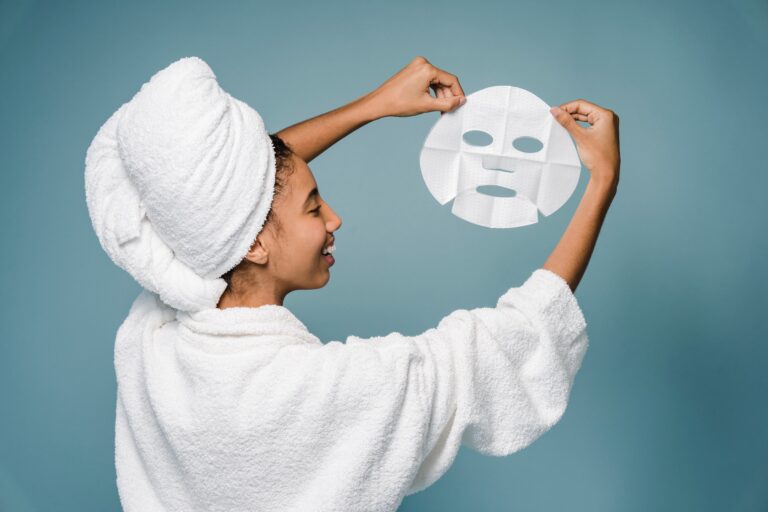We are all familiar with the “buzzwords” used in skincare advertisements, labels, and reviews.

Consider the words moisturising, boosting, or shining.
We all understand that applying a “brightening” night cream won’t cause your face to glow like a baby’s nightlight, but do we truly understand what it means to brighten our skin?
You’re definitely not the only one if you don’t.
We are here to assist you with that right now.
This blog post will discuss brightening in detail, including what it is, what it isn’t, how to get it, and why you might want to get it.
Ladies, fasten your seatbelts as we embark on a crash course in brightness.
Many cosmetic businesses, bloggers, etc. use the word “brightening” to signify a variety of things because it has so many varied meanings.
Brightening is most frequently used to refer to lightening, fading, or, in the most severe situations, bleaching.
Another term for products that could stop the synthesis of pigment and/or remove it from the skin is “brightening” (think dark spots from the sun or acne scars).
Products that aid in accelerating cell turnover and, as a result, the removal of damaged top layers of skin to reveal the lovely, baby-soft skin beneath can also be referred to as brightening (think of it as a great compliment to your exfoliator).
Ingredients To Watch Out For When Brightening Ingredients To Avoid
Hydroquinone, a component that efficiently bleaches the skin, is an element found in a lot of brightening cosmetics.
While hydroquinone may be safe for people with lighter skin tones, those of us with darker skin tones may have unfavourable aesthetic impacts.
This is especially true if you just intend to use the brightening solution on specific areas of your face; otherwise, you risk looking like a leopard!
Components To Accept
We suggest vitamin C goods rather than taking a chance on hydroquinone-containing items.
Because vitamin C’s effects are more lightening and fading than bleaching, it is safer for your delicate skin.
A natural antioxidant is also present in vitamin C.
Another alternative for brightening is glycolic acid, which is also a wonderful exfoliator (helping to remove the damaged upper skin layers) and brightens the face naturally.
If you have sensitive skin, you might want to look for lactic acid-containing products because they are a wonderful alternative for brightening and are probably not going to irritate even the most delicate skin.
Licorice extract, vitamin B3 (niacinamide), retinol, and alpha and beta hydroxy acids are other substances to look for in a brightener.
Melanozyme and kojic acid, two more modern substances, have gained popularity recently for their risk-free skin-brightening properties.
Both melanozyme and kojic acid assist in fading dark spots without overcorrecting or bleaching the skin, making them suitable for people of any skin tone.
Hope it helps!


